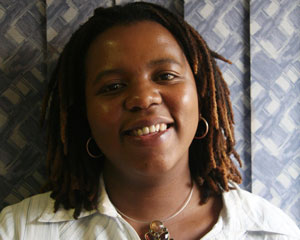
In January 1996, the late former Harare mayor Solomon Tawengwa inscribed the statement “remember the promise” on a page of an Anglican Church hymn book and gave it to his daughter, Gamuchirai.
BY GODWIN MUZARI
He signed below the statement and put a reference for hymn 131 of the song book. The hymn number cites a popular song known as MuKristu Usaneta [a Christian should not get weary].
Gamuchirai had just completed her a’ level studies at Vainona High School and was about to leave for the United States to study business management. While most of Gamuchirai’s peers admired her for the pending journey, the young lady was not happy.
The world around her saw business management as a lucrative career route, but the mayor’s daughter had something else close to her heart — she wanted to pursue a career in the arts.
To her father, a successful businessman, Gamuchirai’s ambition was not only absurd but a clear sign of deviance. A strict condition had to be set.
She would either go to the United States to pursue business studies or no one would pay for her education.
Options constrained, Gamuchirai had to embark on the prescribed voyage. She made a promise to follow her father’s instructions.
- Chamisa under fire over US$120K donation
- Mavhunga puts DeMbare into Chibuku quarterfinals
- Pension funds bet on Cabora Bassa oilfields
- Councils defy govt fire tender directive
Keep Reading
The hymn book, that she had carried every Sunday to church as she grew up, became the constant reminder of her promise. Her father’s inscription was direct and the suggested hymn meant she was not supposed to get weary in whatever situation. She had to pursue her studies without fail and venture into business management.
That was how film and theatre director, Patience Gamu Tawengwa’s journey to self-discovery began [Gamu is short for Gamuchirai]. “It was a sad adventure,” she recalls.
“Besides the mean excitement of living in the United States, I felt that my future was doomed because business management was not my favourite field. I wanted to be a singer. I wanted to do something on the leisure side. I always felt comfortable when doing something related to the arts.”
During her studies in the United States, she occasionally attended arts workshops and briefly turned to writing when she contributed articles to a college magazine.
“When I discovered that I did not have the confidence needed to be a singer, I thought of becoming a writer.
“People said the articles I contributed to the college magazine were good. Somehow, I felt there was something missing in all these endeavours.”
After completing her business studies, Gamuchirai worked for a number of companies in the United States in various capacities.
“I hopped from one company to the other, but I was miserable. In 2004, my sister who was based in South Africa visited me and she was not happy with my situation.
She realised I was living in misery despite amassing material gains.”
Her sister talked about film-making courses in South Africa. She suggested that Gamuchirai would rather try her hand in the film industry to fulfill her passion for the arts than live in perpetual sorrow.
Gamuchirai still had that Anglican Church hymn book with her father’s inscription. She could sing the hymn Mukistru Usanete by head.
Looking back, she realised that she had kept the promise and completed her business studies and worked in related fields for some years.
But for how long was she supposed to keep the promise?
After weighing her options for a couple of years, she decided to break the promise.
In 2006 she went to South Africa to study film-making. She came to Zimbabwe in 2007 and started working on local projects. Her first involvement in local film industry was through directing a short film titled The Return.











